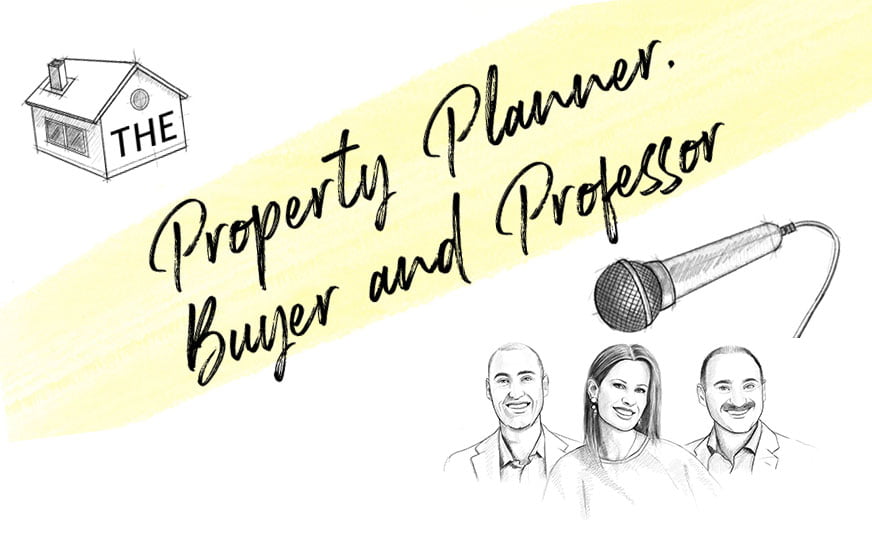Reviewing expenditure and selecting categories
Research shows that one of the keys to happiness is having a healthy bank balance and not feeling like you’re living from pay-day to pay-day. More to the point, you want to be seeing your savings grow, your debt reduce and your investments increase in value. By following a disciplined Money Management System, you can focus on building your cash savings between each property purchase and your investments.
Reviewing and trimming expenditure is both necessary and time consuming for the vast majority of people. We would estimate that five out of ten people are below average with spending habits, four out of ten are good, but could improve, and one out of ten (probably one out of fifty to be honest!) are great with managing expenditure and already have a great system in place. The further you can go back in time (ideally 12 months), the better you can break-down your historical expenditure and the more likely you can accurately assess your true spending habits and find areas where you can cutback.
Step 1 – Move all expenses from your bank accounts into a spreadsheet
We ideally recommend going over your bank statements back in time over the last twelve months.
Step 2 – Move all your expenses into categories.
The more detail the better!
Grow ‘essentials’ – These are regular necessities and set payments which could include loan repayments, rates, electricity, gas, water, phones, insurances, childcare, nanny, pay-tv, online movies, school fees, internet, clothing and holidays. This may also include investment expenditure that your property manager doesn’t pay.
Life ‘variable necessities and contingencies’ – These could include petrol, groceries, nappies, car repairs, home repairs, medical, pharmaceutical, cosmetics, and school books.
Fun ‘nice to haves’ – These could include eating out, entertainment, sport, coffee, alcohol, gifts, parties, magazine subscriptions, club memberships, special treats and babysitting.
Investment expenditure – Track what you have been spending on your investments that’s deductible. This will either be funded in future via redraw on an investment loan which provides the most financial benefit if you have a home loan or other non-deductible debt. Alternatively, you could fund investment deductible expenses via your Property Manager, your ‘Grow’ account directly or a specific offset bucket account for investment expenses.
With your investment choices, for simplicity and effectiveness, you should aim to do the following:
- Fund your deductible expenses from redraw on an investment facility so that your after-tax savings are kept in your ‘Grow’ offset.
This has the two-pronged benefit of reducing interest on your home loan faster whilst optimising your deductible interest. This is the most beneficial for you financially, however, it will take a little more consideration and organising. Talk to your Strategic Mortgage Broker or Property Planner about how you can best set this up.
- Arrange for your Property Manager, as a service, to pay all of your expenses before forwarding your net rent payment each month into your ‘Grow’ account.
It’s likely you’ll still have to pay for some investment expenses yourself and therefore need a hybrid offering one of the options.
- Set up an ’Investment Offset’ bucket.
Either have a budget for this account and place your funds into an upfront account for each month or year from your ‘Grow’ account as you do with your ‘Life’ and ‘Fun’ accounts. Or alternatively, transfer your investment costs from your ‘Grow’ account into your ’Investment’ bucket as they occur.
All investment income could still go into your ’Grow’ account to optimise reduced interest payable on your home loan and/or repayments into your home loan.
4. Pay for all investment expenses from your ‘Grow’ account.
Contact us today to book in a free confidential property planning, strategic mortgage broking, money management or property select meeting.
The Seven Steps to Money Management Success is intended to be an information resource only and contains information of a general nature. It is not intended and does not constitute or act as a credit quote, credit proposal disclosure document or preliminary credit assessment. Further, it does not constitute or contain legal, taxation, financial product or financial planning advice. You should seek independent advice regarding these matters relevant to your own circumstances and individual needs from an appropriately licensed party. All information is provided by PPA with due care to its accuracy, however, no representation or warranty is made as to its accuracy, currency, completeness or reliability. It is your responsibility to assess and verify the accuracy, currency, completeness and reliability of the information and whether it applies in your individual circumstances.






